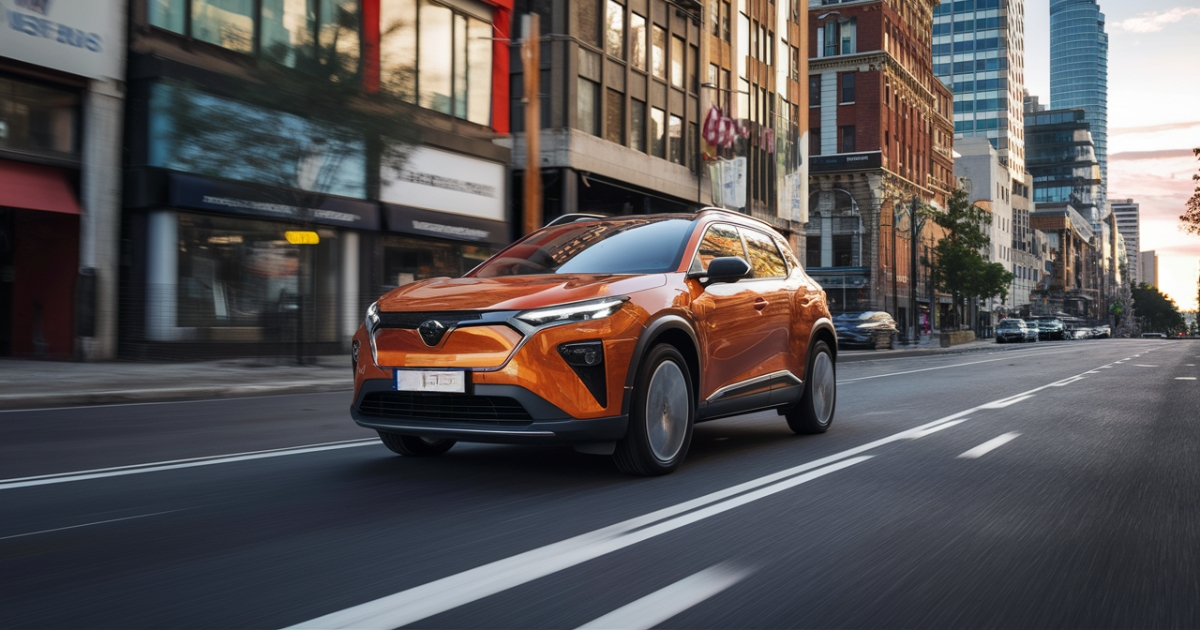
Electric cars are guiding South Africa towards a more eco-friendly future, challenging traditional automotive norms and prompting a significant change in consumer behaviour. As the country deals with issues like energy reliability and environmental conservation, the adoption of electric vehicles (EVs) offers a compelling way to reduce carbon emissions and promote sustainable development. However, with infrastructure development and economic factors still catching up, the question arises: Is South Africa ready to embrace electric vehicles?
Key Takeaways
- Environmental and Economic Benefits: Electric vehicles (EVs) lower greenhouse gas emissions and have reduced operating costs, making them a sustainable and cost-effective alternative to traditional vehicles.
- Challenges to Adoption: High initial costs, limited charging infrastructure, and power supply reliability are major barriers to the widespread adoption of EVs in South Africa.
- Positive Market Trends: Increasing EV sales and new model introductions, supported by government incentives and technological advancements, suggest a promising future for the electric vehicle market in South Africa.
About Arcadia Finance
Secure your loan effortlessly with Arcadia Finance. Enjoy no application fees and select from 19 reputable lenders, each fully compliant with South Africa’s National Credit Regulator standards. Benefit from a streamlined process and trustworthy options tailored to your financial needs.
What Are Electric Cars?
Electric cars, also known as electric vehicles (EVs), are cars that operate using one or more electric motors, which draw power from rechargeable batteries. Unlike conventional vehicles that use petrol or diesel engines, electric cars run entirely on electricity, which can come from sources such as solar power, wind energy, or the conventional electric grid.
These vehicles are noted for their efficiency and reduced environmental impact compared to internal combustion engines. Electric cars produce zero tailpipe emissions, significantly reducing air pollution and greenhouse gas emissions. Additionally, they are known for their quiet operation and quick acceleration due to the instant torque provided by electric motors.
The technology behind electric cars includes advanced battery systems, sophisticated control software, and regenerative braking systems that help maximise energy efficiency. As the global automotive industry moves towards sustainability, electric cars are becoming more common on roads worldwide, representing an important step in the transition towards cleaner energy use in transportation.
If you’re considering purchasing an electric car, understanding your financing options can make all the difference. Explore our comprehensive guide on the best way to finance a car to discover the most cost-effective and suitable financial plans available, tailored to your needs, whether it’s through leasing, loans, or outright purchase.
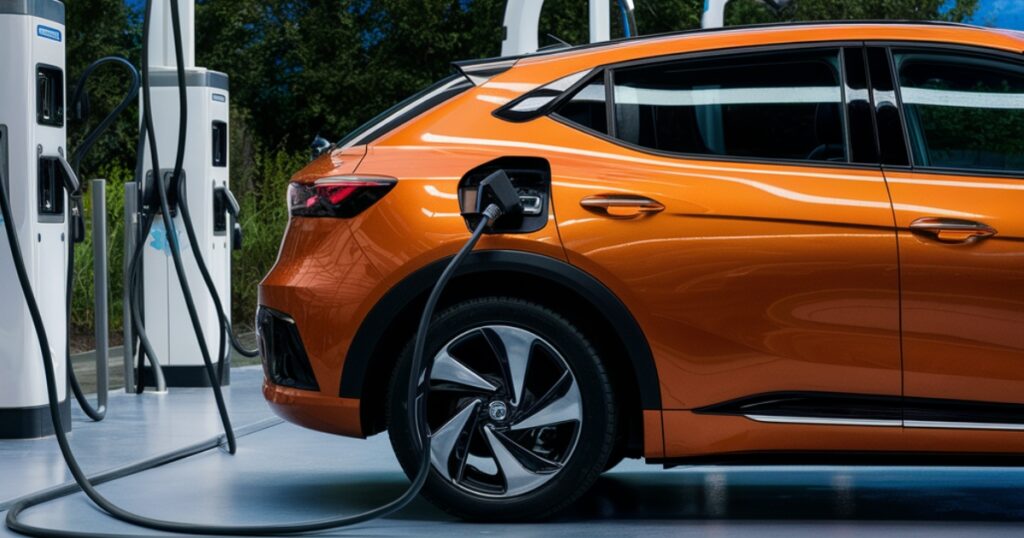
The Benefits of Electric Vehicles
Electric vehicles (EVs) offer various benefits, making them an increasingly popular choice for drivers globally, including in South Africa. Here are some key advantages of adopting electric vehicles:
Environmental Impact: EVs significantly reduce pollution because they emit no tailpipe pollutants such as nitrogen oxides and particulate matter, common in the exhaust of internal combustion engines. This reduction in air pollution is essential for improving urban air quality and mitigating health issues associated with air pollution. Moreover, electric vehicles, when paired with renewable energy sources, can further decrease the carbon footprint associated with driving.
Energy Efficiency: Electric vehicles are generally more efficient than conventional petrol or diesel cars. The electric engine converts a higher percentage of electrical energy from the grid to power the wheels. This efficiency translates into better performance and less energy consumption per kilometre compared to traditional vehicles.
Reduced Operating Costs: Although the initial purchase price of EVs can be higher, the cost of operating an electric vehicle is lower over the vehicle’s lifetime. This is due to the lower cost of electricity compared to petrol or diesel and fewer moving parts in the engine, resulting in lower maintenance costs. EV owners often benefit from lower servicing costs, no oil changes, and the long-term durability of electric motors.
Noise Reduction: Electric vehicles provide a quieter driving experience, reducing noise pollution. This not only makes for a more comfortable ride but can also contribute significantly to decreasing overall noise pollution levels in urban environments.
Government Incentives: Many governments, including South Africa, are beginning to offer various incentives for EV buyers, such as tax rebates, grants, and exemptions from certain fees to encourage the adoption of electric vehicles. These incentives help to offset the initial purchase cost and make EVs more accessible to a broader audience.
Electric vehicles represent progress in both automotive technology and environmental conservation. As technology advances and infrastructure improves, the benefits of EVs are likely to increase, making them an even more attractive option for consumers.
Navigating the roads with your electric vehicle involves understanding the local regulations, especially regarding traffic fines. Our detailed guide on how traffic fines work in South Africa provides essential insights to help you avoid penalties and drive responsibly.
5 Top-selling EV Brands in South Africa in 2024
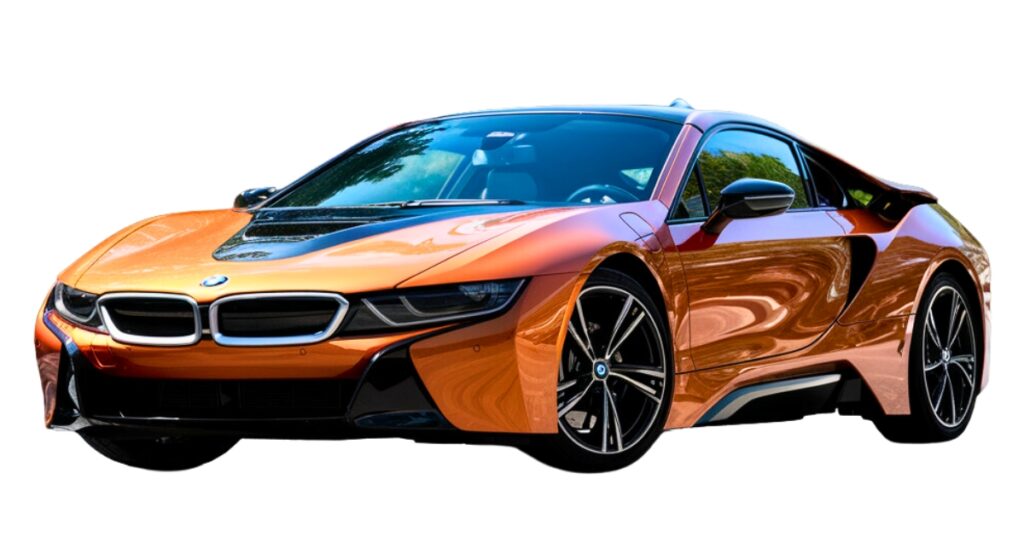
BMW
- BMW iX1 xDrive30: Prices start around R1,205,000.
- BMW iX3: Prices start from R1,361,400.
- BMW iX: The iX model starts from approximately R1,735,000.
BMW is a leading seller of electric vehicles, combining luxury with efficiency. The BMW iX and iX3 are particularly noted for their powerful engines and long-range capabilities.
Pros
- Advanced Technology: BMW’s electric vehicles, such as the iX3 and iX, are equipped with high-performance batteries and sophisticated driver-assistance systems, enhancing both the driving experience and safety.
- Luxury and Comfort: Known for luxury, BMW’s EVs offer premium interiors, superior comfort, and a host of customisable features, appealing to those who seek a luxury driving experience.
Cons
- High Cost: BMW’s electric models come with a high price tag, which can be a significant barrier for many consumers, limiting accessibility.
- Limited Model Variety: Compared to competitors, BMW has fewer electric models available, which may limit options for potential buyers looking for specific types of EVs.
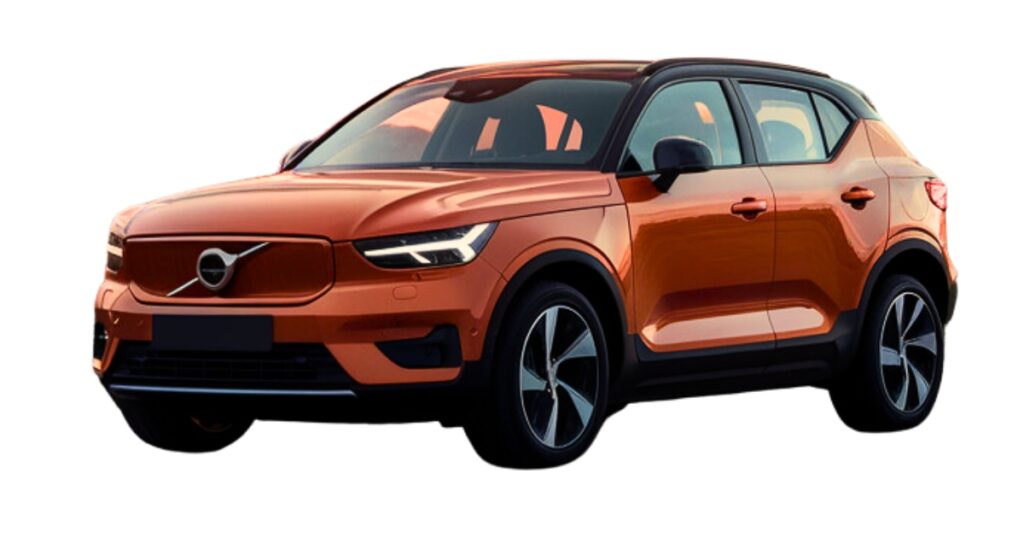
Volvo
- Volvo EX40: The EX40, previously known as the XC40 Recharge, starts at R1,108,000.
- Volvo EX30: Starting price is around R775,900.
- Volvo C40 Recharge: Prices begin from R1,324,000.
Volvo is well-regarded for its models like the EX40 and the newly launched EX30, both praised for their design and sustainability features. The Volvo C40 Recharge is also recognised for its stylish coupe-like silhouette and robust performance.
Pros
- Sustainability Focus: Volvo is committed to sustainability, not just in their vehicles like the EX40 and C40 Recharge but also in their production processes, appealing to environmentally conscious consumers.
- Safety Innovations: Volvo’s electric vehicles incorporate the brand’s long-standing reputation for safety, with advanced features that protect passengers and pedestrians alike.
Cons
- Premium Pricing: Similar to BMW, Volvo’s EVs are priced at a premium, which might be out of reach for the average consumer.
- Charging Infrastructure Dependency: While Volvo offers impressive range, the performance is highly dependent on the availability of charging infrastructure, which can be a concern in areas where it is sparse.
Load shedding poses challenges for electric vehicle adoption. Learn about the Financial Impact of Load Shedding and its implications for greener transportation.
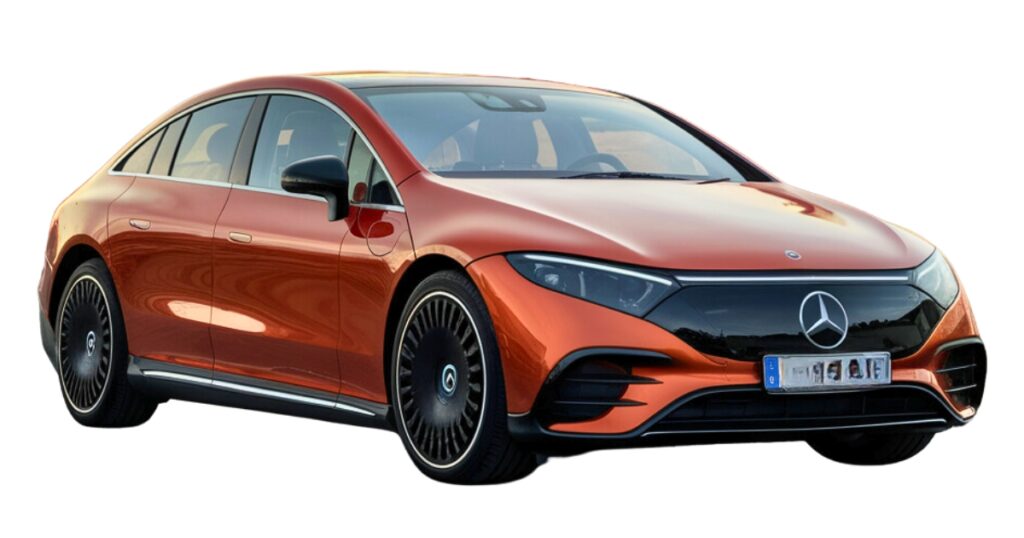
Mercedes-Benz
- Mercedes-Benz EQA: Pricing details specific to South Africa were not found, but globally, EQA models start at higher ranges similar to other luxury EVs.
- Mercedes-Benz EQC: This model typically starts above the R1 million mark.
Mercedes-Benz ranks high with its EQ series, including the compact EQA and the larger EQC, offering luxury in electric form with advanced technological integrations and high-performance metrics.
Pros
- High Performance: Mercedes-Benz’s EQ models, such as the EQA and EQC, offer robust performance with quick acceleration and high top speeds, suitable for those who prioritise power in their vehicles.
- Brand Prestige: Mercedes-Benz’s strong brand image and reputation enhance the desirability of their EVs, attracting buyers looking for status as well as performance.
Cons
- Battery Range Concerns: Some models may have limitations in range compared to rivals, which can affect long-distance usability.
- Cost of Maintenance: Maintenance and repair costs for high-end EVs like those from Mercedes-Benz can be expensive, potentially increasing the total cost of ownership.

Mini
- Mini Cooper SE Hatch 3-door: This model is available from around R709,000, making it one of the more accessible premium EVs.
The Mini Cooper SE stands out in the compact segment, offering a fun and dynamic driving experience, popular among those looking for a smaller electric vehicle.
Pros
- Urban Agility: The Mini Cooper SE is ideal for city driving with its compact size and nimble handling, making it easy to manoeuvre and park in tight spaces.
- Distinctive Design: Mini’s unique styling sets it apart from other EVs on the market, appealing to those who value individuality and design.
Cons
- Limited Space: The compact size of the Mini Cooper SE might not be suitable for everyone, particularly families who need more space for passengers and cargo.
- Range Limitations: The Mini’s smaller battery size results in a shorter range compared to larger EVs, which might not be suitable for longer commutes or road trips.
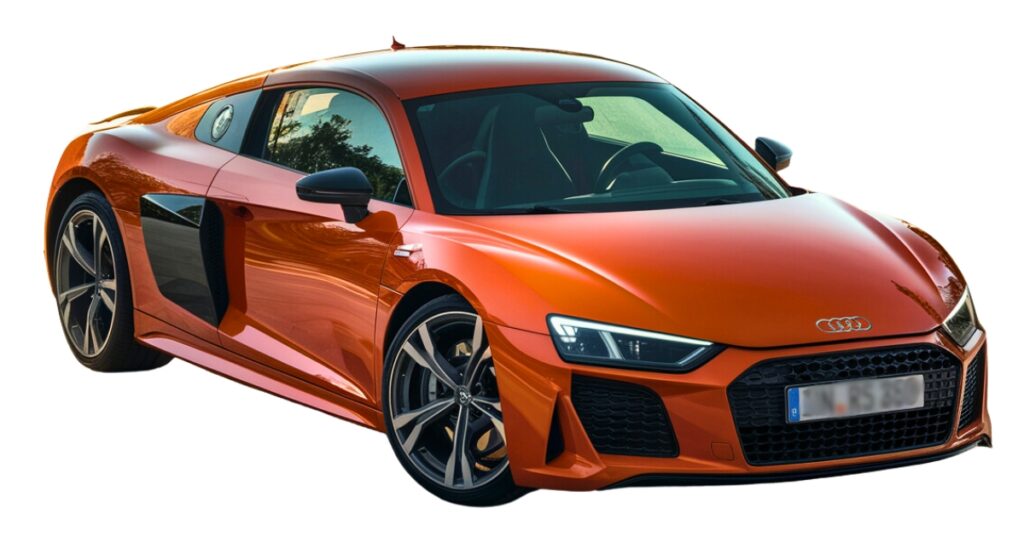
Audi
- Audi e-tron: The e-tron’s price starts from approximately R1.5 million, reflecting its position in the premium segment of the market.
Audi makes the list with the e-tron series, known for its premium interiors and advanced electric technologies that ensure a balance of performance and luxury.
Pros
- All-Wheel Drive Capabilities: Audi’s e-tron models often come with all-wheel drive, providing better traction and handling in various weather conditions, making them suitable for diverse driving environments.
- Quiet and Smooth Ride: Audi EVs are known for their quiet operation and smooth ride, enhancing the comfort level for all passengers.
Cons
- High Price Point: Audi’s e-tron series is positioned in the premium segment, which might not be affordable for all buyers.
- Weight and Size: Audi’s electric models tend to be heavier and larger, which can affect agility and efficiency, particularly in urban settings where smaller cars are often more practical.
These brands have been recognised for their contributions to expanding the electric vehicle market in South Africa, offering a range of models that cater to different needs, from luxury SUVs to compact city cars.
Discover how electric vehicles stack up against the most affordable traditional cars by exploring our article on Cheapest New Cars in South Africa.
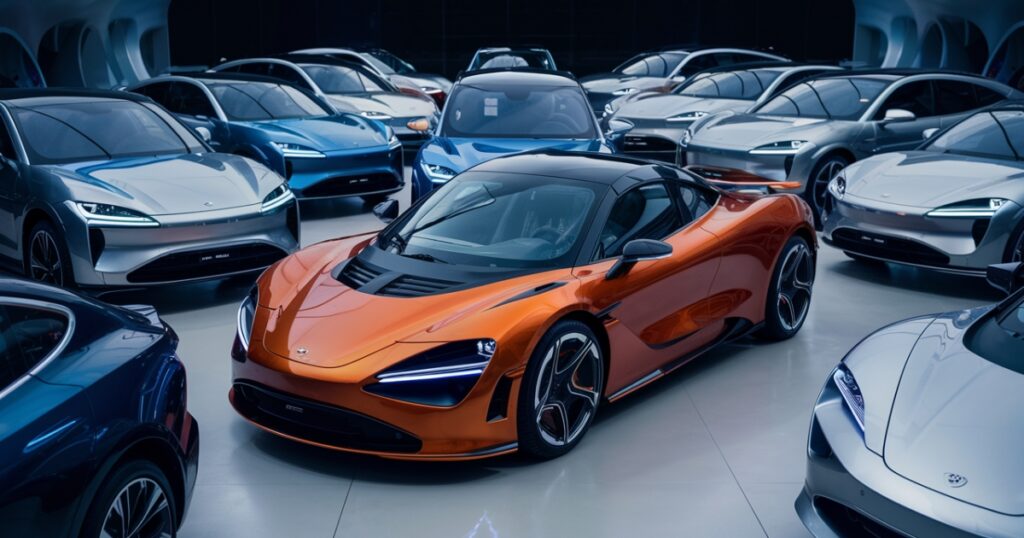
Basic Specifications of Top 5 Top-Selling EVs in South Africa
Here is a table summarizing the basic specifications of the top-selling electric vehicles in South Africa for 2024, providing a quick comparison of model names, manufacturers, prices, range per charge, and battery capacities.
| Model Name | Manufacturer | Price (ZAR) | Range per Charge (km) | Battery Capacity (kWh) |
|---|---|---|---|---|
| BMW iX1 xDrive30 | BMW | From 1,205,000 | Up to 425 | 76.6 |
| Volvo EX40 | Volvo | From 1,108,000 | Up to 423 | 78 |
| Mini Cooper SE Hatch 3-door | Mini | From 709,000 | Up to 234 | 32.6 |
| Audi e-tron | Audi | From 1,500,000 | Up to 436 | 95 |
| Mercedes-Benz EQC | Mercedes-Benz | From 1,200,000 | Up to 417 | 80 |
Performance Specifications of Top 5 Top-Selling EVs in South Africa
Below is a table that showcases the performance characteristics of the top-selling electric vehicles in South Africa for 2024. This includes details about their acceleration, top speed, power output, and torque, offering a clear comparison for potential buyers interested in the performance aspects of these EVs.
| Model Name | Acceleration (0-100 km/h) | Top Speed (km/h) | Power Output (kW) | Torque (Nm) |
|---|---|---|---|---|
| BMW iX1 xDrive30 | 6.8 seconds | 200 | 240 | 460 |
| Volvo EX40 | 7.9 seconds | 180 | 300 | 660 |
| Mini Cooper SE Hatch 3-door | 7.3 seconds | 150 | 135 | 270 |
| Audi e-tron | 5.7 seconds | 200 | 300 | 664 |
| Mercedes-Benz EQC | 5.1 seconds | 180 | 300 | 760 |
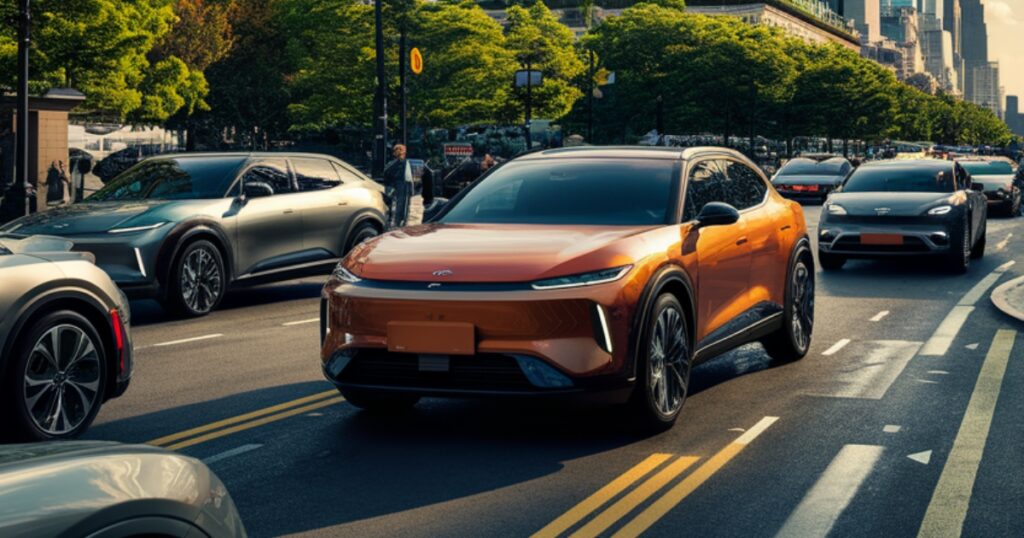
Challenges to Overcome for Electric Cars in South Africa
Electric vehicles (EVs) emit no greenhouse gases, unlike internal-combustion engines (ICEs), and offer excellent driving performance. As global carmakers shift away from ICE technology, EVs are expected to replace them. For example, Volvo plans to exclusively produce EVs by 2030. South African motorists will eventually need to switch to EVs, but several major obstacles must be addressed to ensure successful adoption.
High Prices
Currently, no EV in South Africa falls into the ‘entry-level’ category. The most affordable option, GWM’s Haval Ora 03, costs nearly R700,000, whereas entry-level ICE vehicles can be bought for under R200,000. Import taxes also widen the cost gap: ICE vehicles imported from the EU face an 18% tax, whereas EVs are taxed at 25%. To make EVs more affordable, adjustments to import tax rates and investment in local EV manufacturing are necessary.
Unreliable Power Supply
Although EVs can be easily charged at home, the reliability of grid power is hindered by Eskom load-shedding and frequent outages. While solar power systems with battery storage offer a potential solution, they come with high costs. Ensuring a stable and dependable power supply is crucial for widespread EV adoption.
Lack of Public Charging Stations
Currently, South Africa has over 350 charging points, mostly in major urban areas. However, the government and Eskom have not prioritised expanding this network. To enable confident long-distance travel for EV drivers, a significant increase in the number of high-powered charging stations is required.
Higher Repair and Service Costs
Despite being cheaper to operate and having fewer parts that need regular maintenance, EV parts and spares are more expensive, and mechanics require specialised training to service them. As a result, repair and insurance costs for EVs are higher compared to ICE vehicles.
Range Anxiety
EVs generally offer a range of about 400 kilometres, but this can decrease over time. Running out of battery power is more problematic than running out of fuel in traditional vehicles. To alleviate range anxiety, a comprehensive network of charging stations and advancements in battery technology are essential.
Fear of the Unknown
In South Africa, EV technology is still relatively new, and many people are unfamiliar with it. Continuous education efforts from car manufacturers, dealers, and motoring media are vital to inform the public and address their concerns regarding EV adoption.
Conclusion
While the future of electric vehicles (EVs) in South Africa is promising, several challenges must be addressed to ensure their successful adoption. High costs, unreliable power supply, limited charging stations, range anxiety, and higher repair costs are significant hurdles. Additionally, public unfamiliarity with EV technology requires ongoing education. With strategic investments, policy adjustments, and increased public awareness, South Africa can align with global trends and move towards a sustainable, eco-friendly automotive future.
Frequently Asked Questions
Electric vehicles present numerous benefits, such as zero greenhouse gas emissions, reduced operating costs, and superior driving performance compared to their internal-combustion engine (ICE) counterparts. They contribute to reducing air pollution and lowering reliance on fossil fuels, supporting worldwide sustainability objectives.
EVs are currently more expensive due to high import taxes and the absence of local production. The least expensive EVs in South Africa are significantly pricier than entry-level ICE vehicles, mainly because of a 25% import tax on EVs compared to 18% for ICE cars. Investments in local manufacturing and adjustments to import taxes could help lower these costs over time.
The power supply in South Africa is often unreliable due to load-shedding and frequent outages by Eskom. Although home charging is convenient, the instability of the grid is a challenge. Solar power systems with battery storage can provide a solution, though they are costly. Ensuring a stable and reliable power supply is essential for the widespread adoption of EVs.
Currently, South Africa has over 350 charging points, mainly in major urban areas. However, this network is insufficient for widespread EV adoption, especially for long-distance travel. A significant increase in the number of high-powered charging stations is necessary to support EV drivers throughout the country.
Ongoing education efforts are crucial for increasing public awareness and acceptance of EVs. Car manufacturers, dealers, and motoring media are actively working to inform the public about the benefits and functionalities of EVs. These initiatives aim to address common concerns and misconceptions, facilitating the transition towards a more sustainable automotive future.
Fast, uncomplicated, and trustworthy loan comparisons
At Arcadia Finance, you can compare loan offers from multiple lenders with no obligation and free of charge. Get a clear overview of your options and choose the best deal for you.
Fill out our form today to easily compare interest rates from 19 banks and find the right loan for you.


